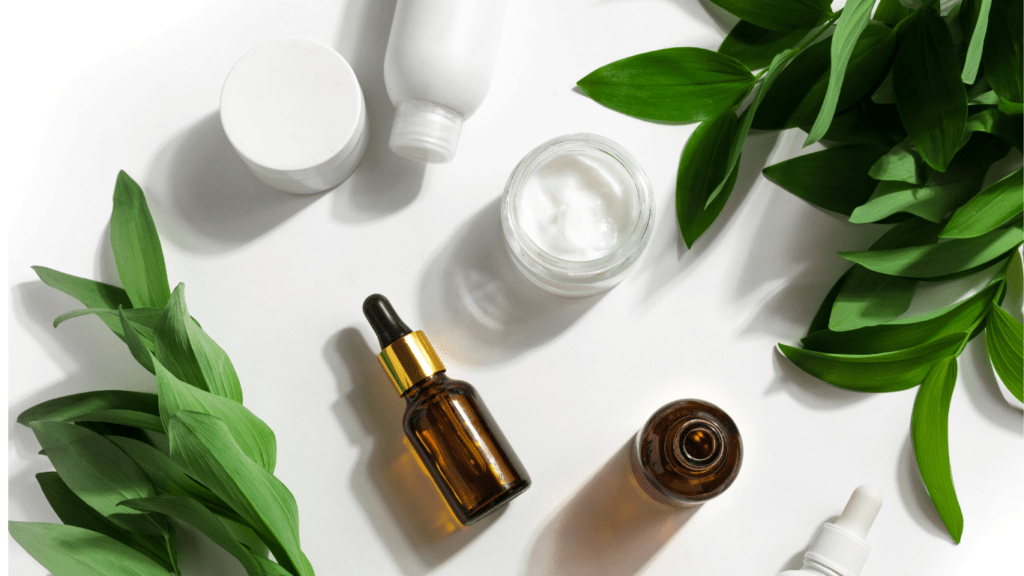Understanding DIY Natural Remedies
DIY natural remedies offer practical solutions for common ailments using accessible, home-based ingredients. They provide a holistic approach to treating everyday health issues.
The Rise of Home Treatments
Home treatments have gained popularity due to their convenience and cost-effectiveness. Individuals now opt for DIY remedies to manage minor ailments like:
- colds
- headaches
- digestive issues
For example, using honey and lemon to soothe a sore throat or ginger tea to alleviate nausea has become common. Increased awareness of natural healing properties drives this trend, supported by a growing body of research showcasing their benefits.
Safety and Efficacy Considerations
Safety and efficacy are paramount when using DIY natural remedies. Though many natural ingredients offer health benefits, misuse can lead to adverse effects.
For instance, essential oils can cause skin irritation if applied undiluted. Research and consult reliable sources before trying new remedies. Verify ingredient interactions, especially if on medications, to avoid complications.
Always start with small doses to gauge personal tolerance and effectiveness, ensuring safe and beneficial outcomes.
Common Ingredients in DIY Remedies
DIY remedies often involve a variety of natural ingredients known for their therapeutic properties. Many are already in your kitchen or can be easily sourced from your local store.
Herbs and Their Healing Properties
Herbs serve as a cornerstone in many DIY remedies due to their potent healing properties, derived from bioactive compounds.
- Ginger: Eases nausea and reduces inflammation, ideal for colds and digestive issues.
- Turmeric: Contains curcumin, an anti-inflammatory agent effective in reducing pain and swelling.
- Peppermint: Soothes headaches and digestive discomfort with its menthol content.
- Chamomile: Alleviates insomnia and digestive disturbances through its calming effects.
Essential Oils for Everyday Use
Essential oils offer concentrated benefits and are often included in DIY remedies. They can be applied topically or diffused for inhalation, with safety precautions considered.
- Lavender: Promotes relaxation and sleep, useful for anxiety and minor burns.
- Tea Tree: Antimicrobial and antiseptic, ideal for treating skin infections and acne.
- Eucalyptus: Relieves respiratory issues and congestion due to its decongestant properties.
- Lemon: Uplifts mood and improves focus, also effective as a natural cleaner and for detoxification.
Use these natural ingredients in your DIY remedies to manage common ailments effectively with minimal side effects.
Remedies for Digestive Issues
Addressing digestive issues with natural remedies can provide effective and gentle relief. Here are some trusted solutions that many find beneficial.
Herbal Teas for Stomach Relief

Consuming herbal teas can soothe an upset stomach. Ginger tea is excellent for nausea and bloating. Boil 1-2 grams of fresh ginger in water for 5 minutes, strain, and drink.
Peppermint tea can alleviate gas and cramps. Steep 1 teaspoon of dried peppermint leaves in hot water for 10 minutes. Chamomile tea offers relaxation and reduces stomach acidity.
Use 2 grams of dried chamomile flowers in boiling water, let it steep for 15 minutes before drinking.
Natural Solutions for Indigestion
Several natural remedies can ease indigestion. Apple cider vinegar helps by balancing stomach acid. Mix 1 tablespoon of apple cider vinegar in a glass of warm water, and drink before meals.
Fennel seeds can reduce gas and bloating. Chew 1/2 teaspoon of fennel seeds after meals. Baking soda neutralizes stomach acids providing quick relief.
Dissolve 1/2 teaspoon of baking soda in a glass of water and drink. Remember to consult a healthcare provider if symptoms persist to ensure no underlying conditions.
Solutions for Skin Concerns
Natural remedies offer effective solutions for various skin concerns. Here, I’ll focus on homemade acne masks and natural moisturizers for dry skin.
Homemade Masks for Acne
Creating homemade masks can help control acne. One effective mask uses honey and cinnamon. Honey’s antibacterial properties and cinnamon’s anti-inflammatory benefits make a powerful combination. Mix 2 tablespoons of honey with 1 teaspoon of cinnamon, apply to your face, and rinse after 10 minutes.
Another mask uses turmeric, known for its anti-inflammatory and antioxidant properties. Combine 1 teaspoon of turmeric powder with 2 tablespoons of yogurt; apply the mixture to your face, leave it on for 15 minutes, and rinse. This mask can reduce redness and blemishes.
Aloe vera gel mixed with tea tree oil targets acne effectively. Blend 1 tablespoon of aloe vera gel with 2-3 drops of tea tree oil, apply to your skin, and leave it overnight. Tea tree oil’s properties, combined with aloe’s soothing effects, aid in reducing acne outbreaks.
Natural Moisturizers for Dry Skin
Keeping skin hydrated is essential, especially with natural moisturizers. Coconut oil works well due to its high fatty acid content. Apply a small amount to your skin after showering to lock in moisture and provide lasting hydration.
Shea butter is another excellent option, rich in vitamins A and E. Melt a small amount in your hands and apply directly to your skin. It deeply nourishes and repairs dry, flaky areas.
For an easy DIY moisturizer, blend equal parts of olive oil and aloe vera gel. Olive oil deeply penetrates the skin, while aloe vera soothes and hydrates. Apply this mixture to your skin before bedtime for best results.
Treating Minor Wounds and Burns
Natural remedies offer effective treatments for minor wounds and burns using common household ingredients. These options not only promote healing but also minimize scarring.
Aloe Vera and Its Benefits
Aloe vera helps treat minor burns and wounds due to its anti-inflammatory and soothing properties. Apply fresh aloe vera gel directly to the affected area for cooling relief and faster healing.
Scientific studies show that aloe vera accelerates wound contraction and increases collagen synthesis, improving skin repair. Keep an aloe vera plant at home, so you have access to fresh gel whenever needed.
DIY Antiseptic Creams
Homemade antiseptic creams protect minor cuts and prevent infections. Combine coconut oil and honey for a natural remedy with antimicrobial properties.
Mix 2 tablespoons of coconut oil with 1 tablespoon of raw honey. Optionally, add 5 drops of tea tree oil for extra antibacterial effects. Apply the cream to clean wounds and cover with a sterile bandage.
Replace commercial antiseptics with this DIY option for a safer, chemical-free alternative.
 Edward Kindler - Eco-Tourism Advocate & Contributor at Green Commerce Haven
Edward Kindler is a passionate eco-tourism advocate and a dedicated contributor to Green Commerce Haven. With a background in sustainable travel and a deep love for nature, Edward specializes in sharing insights on eco-tourism tips and environmentally responsible travel practices. His expertise helps guide readers in exploring the world while minimizing their environmental impact. Edward’s contributions to Green Commerce Haven reflect his commitment to promoting travel experiences that honor and protect the natural world.
Edward Kindler - Eco-Tourism Advocate & Contributor at Green Commerce Haven
Edward Kindler is a passionate eco-tourism advocate and a dedicated contributor to Green Commerce Haven. With a background in sustainable travel and a deep love for nature, Edward specializes in sharing insights on eco-tourism tips and environmentally responsible travel practices. His expertise helps guide readers in exploring the world while minimizing their environmental impact. Edward’s contributions to Green Commerce Haven reflect his commitment to promoting travel experiences that honor and protect the natural world.
